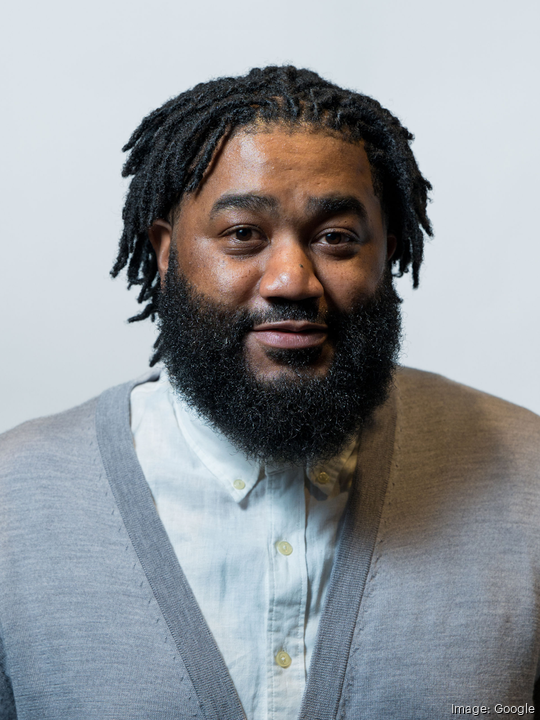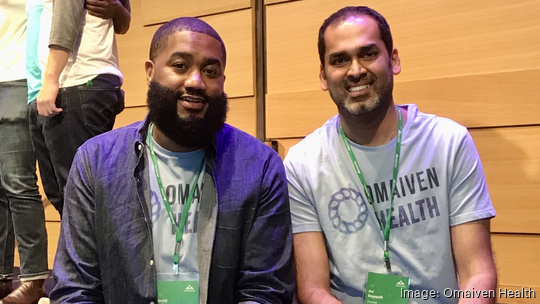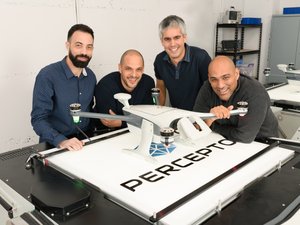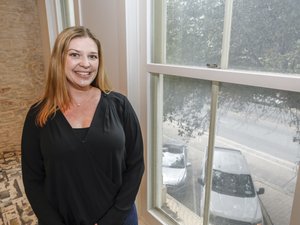
One billion minutes. That's a lot of time — almost two thousand years, if you add it up.
That's also how much time Austin startup Omaiven Health hopes to one day save clinics, hospitals and patients with its front-office automation software.
"People deserve to get what they want, when they want, how they want it," Omaiven co-founder and CEO Jerold McDonald said. "Unfortunately, since there's a staffing crunch on the clinic side, you're not going to have enough people to answer the phone."
That's where Omaiven's platform can fill in. Its call center automation software, powered partly by artificial intelligence, can manage a lot of the administrative busy work of documenting everything and understanding scheduling issues for clinics and patients, as well as answering questions.
"What the clinic obviously gains from that is that they're able to answer more phone calls, which means they're actually giving more care to the community, but also saving on that costs," said McDonald, who was previously director of onboarding at Athenahealth.
Omaiven, founded in 2018, is now poised to get a boost from the Google for Startups Black Founders Fund. Google named McDonald on July 13 as one of six founders in Texas to receive $150,000 of non-dilutive funding, as well as $100,000 worth of Google Cloud credits and a variety of mentoring and networking connections.
The funding and cloud credits are significant, McDonald said.
Omaiven was initially bootstrapped by McDonald and co-founder and Chief Technology Officer Ani Bagepalli. About a year ago it raised seed funding from New Age Capital, Everywhere VC and Techstars. The company now has five full-time employees, as well as several fractional ones.

"Funding like this is such a great opportunity," McDonald said. "What it does for us specifically is it allows us to work with more collaboration partners. Those are hospitals, those are medical clinics where we're learning what are the exact most valuable automations that can happen — is it just in the call center? So we'll be able to dig deeper with a few new partners as well as with the existing ones."
Having Google's backing, as well as partnerships and support with from Johnson & Johnson Impact Ventures, could also help Omaiven secure larger funding rounds in the future.
Omaiven is poised to raise a new round of funding next year. But raising venture capital has been difficult for Black founders in Austin and across the nation. Black founders raised only about 1% of the overall venture capital dollars that flowed to startups in 2022, according to Crunchbase.
McDonald said Austin has a powerful network and support system for local startups, including DivInc, an accelerator geared toward minority and women founders that was also Omaiven's first accelerator experience. But, he noted, there's a lot of room for improvement on the startup scene.
"The phrase that I always like to think of is 'underestimated,' reason being is because it's not a matter of talent, skill or opportunity alone," he said of Black founders in Austin. "Many people just don't either know that we've existed or have not given us a shot. And so I think that in Austin, we're blessed with a very good ecosystem. Many places in America don't have that long and entrenched network. So that's the good thing about Austin.
"What I think we can do a better job of is really rallying around each one of our founders — whether of color or any marginalized group, and then figuring out how we work together, how we build together to create the future."
Meanwhile, Omaiven is focused on deploying its automation platform to more clinics across the nation to work toward saving that collective 1 billion minutes of busy work. Such automations can be especially impactful at clinics and hospitals serving minority and underserved communities where staffing shortages are sometimes even more troublesome than in big hospital systems.
"If we can do that, that means that health care has saved dollars and has been able to devote that time toward patient care and research," he said. "That means that, literally, people's lives have been extended because they've been able to get into the doctor's office."







